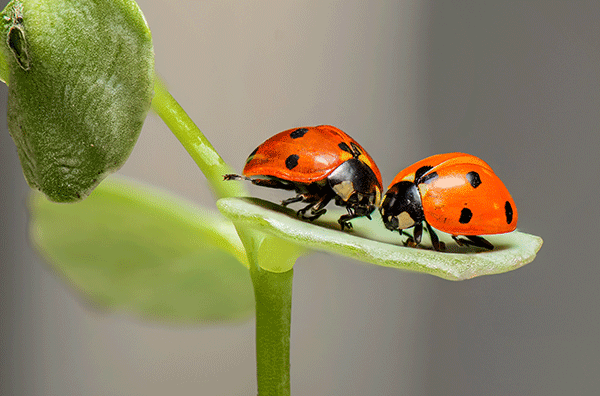Two new landmark reports have placed the spotlight on the global biodiversity crisis by linking it to economics and food security and called for urgent action before time runs out.
The Dasgupta Review, a 500-page report commissioned by the UK treasury warned that our current barometer of economic success is putting the world at “extreme risk”.
The failure to address and respond to the crisis is a sign of “institutional failure writ large,” the report said, and outlined that the current economic model is not designed to consider nature’s importance.
“The macroeconomics of growth and development continue to be built without nature’s appearance as an essential entity in our economic lives,” the report concluded.
The report, which was notable for being produced by the Treasury rather than Defra, has been welcomed as a significant development in awareness around the biodiversity crisis for translating environmental concerns into economic terms.
It has been welcomed by people ranging from National Food Strategy lead, Henry Dimbleby, to governor of the Bank of England, Andrew Bailey.
Head of the International Monetary Fund (IMF), Kristalina Georgieva, said: “The Dasgupta Review comes at an opportune time for the world economy, with many governments thinking about how to embark on a more equitable, greener, and sustainable development path.”
Vice president of global NGO The Population Council, Dr John Bongaarts, said: “The report represents an impressive effort to bridge the longstanding gap between the views of biologists and economists.”

Separately in the same week, international think tank Chatham House, released its own report emphasising that food production is at the heart of the biodiversity crisis.
“Biodiversity loss is accelerating around the world. Since 1970 populations sizes of mammals, birds, reptiles, and amphibians has decreased by an estimated average of 68 per cent,” the report said.
“The global food system is the primary driver of this trend. Over the past 50 years, the conversion of natural ecosystems for crop production or pasture has been the principal cause of habitat loss, in turn reducing biodiversity,” it said.
Highlighting that biodiversity is integral in maintaining healthy ecosystems, which in turn allow us to grow food, researchers warned that: “Further destruction of ecosystems and habitats will threaten our ability to sustain human populations.”
The reports come amid growing calls for more awareness of the devasting impacts of global species declines from campaigners and activists, including youth conservationist Mya-Rose Craig.
“Why do hundreds of thousands of young people march for climate change but there is hardly a word spoken about biodiversity loss?” Craig asked in a recent column for Wicked Leeks.
Lead researcher on the Chatham House report, Professor Tim Benton, told Wicked Leeks: “We need to recognise that our demand for food is what drives agriculture, and a sustainable food system won’t come from about sustainable agriculture alone.”
He said there are small signs of progress, and said: “Ten years ago, this conversation wouldn’t be happening. Now politicians, and their advisors, are engaging with it.”
Still time to act
Despite headline warnings, both reports state that it is achievable to reverse declines in biodiversity, if urgent action is taken by government, citizens, businesses, NGOs and communities.
According to the Dasgupta Review these actions should include; balance human demand with nature’s supply; change our measures of economic success; and transform our institutions and systems.
The Chatham House report’s three suggestions included; diet change, setting aside land for biodiversity and adapting the way we farm.
“Global dietary patterns need to converge around diets based more on plants, owing to the disproportionate impact of animal farming on biodiversity, land use and the environment,” the report said.















It seems to me that unless the gov’t, with a system of subsidies, starts to reward organic and or some other form of ecological food growing, growers will hesitate to change. If the gov’t actively encouraged systems which some would feel undermined their position would people like DEFRA start protesting?
Growers no matter how small who care for the soils and seek to build healthy soils which will produce healthy food, should be rewarded for this. The benefits to all wild animals will soon become apparent with these sorts of systems.
It’s still unclear what the new subsidies will look like (the ones replacing the EU ones) but it is expected to reward environmental services rather than production services. I asked Prof Tim Benton the author of the above Chatham House report whether he thinks the new subsidies will go far enough to address the biodiversity catastrophe we are in the middle of and he said “Ha, that is a joke right? A small step in the right direction but not the ‘giant step for mankind'”.
So it seems like they’ve got the right idea, but as per DEFRA probably won’t go far enough to properly address the issue and make real progress.
https://www.slowfood.org.uk/urgent-untimely-and-by-stealth-the-government-consultation-on-the-regulation-of-genetic-technologies/